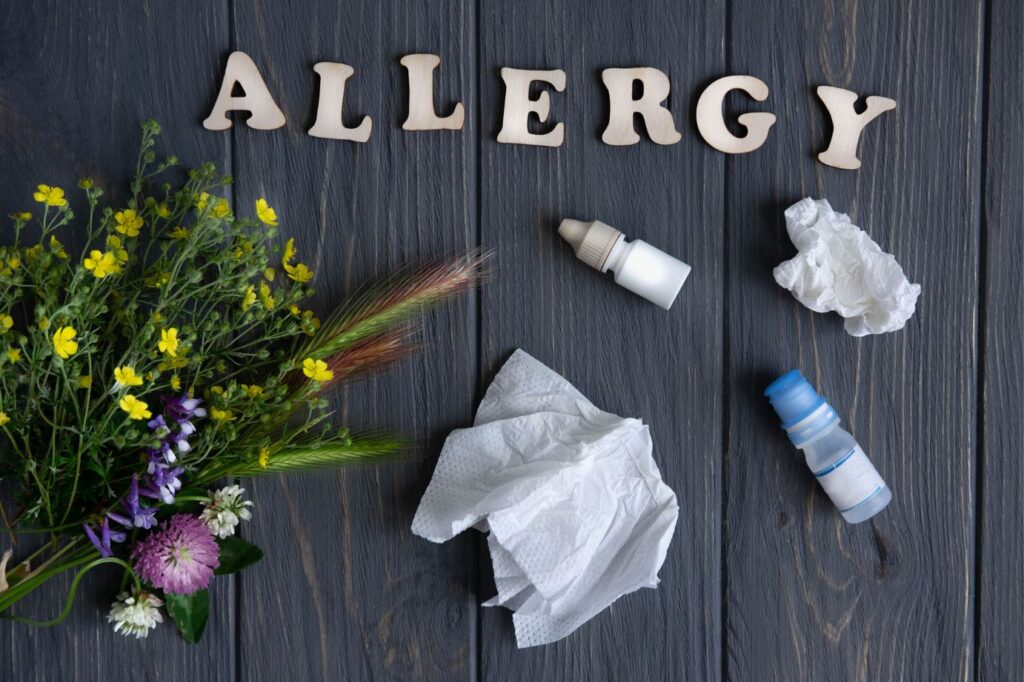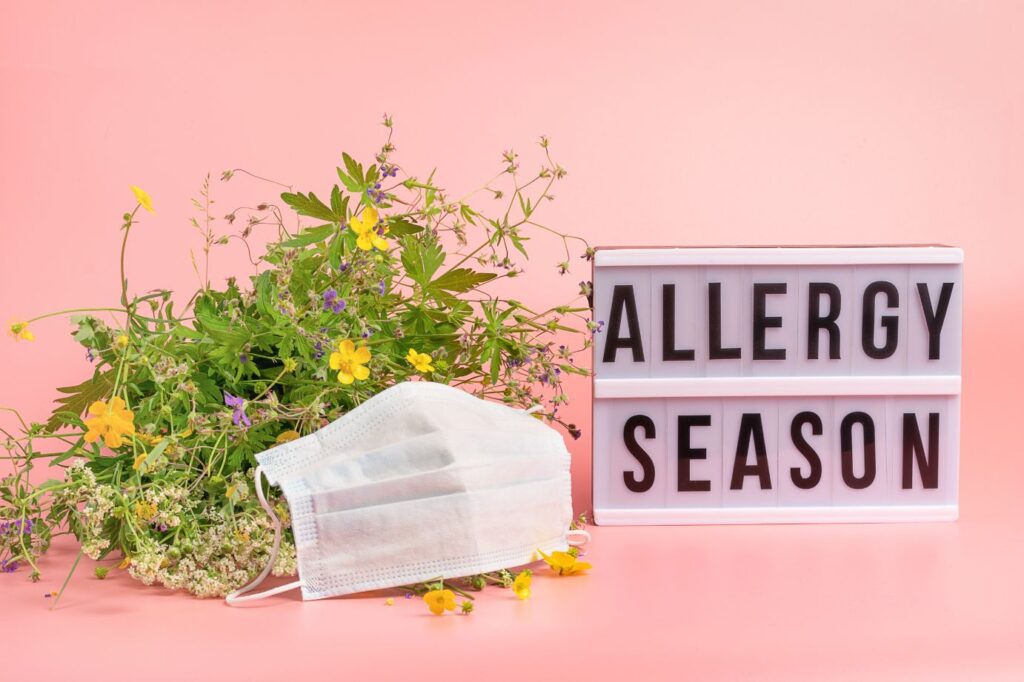Table of Content
- Identifying Your Triggers
- 5 Tips for Preventing Seasonal Allergies
- Track Pollen Counts and Stay Indoors When High
- Create an Allergy-Free Zone at Home
- Manage Indoor Allergens Like Dust Mites and Mold
- Consider Over-the-Counter Medications
- Explore Natural Relief Options
- Additional Considerations
- Frequently Asked Questions
It’s spring time and that means many people are dealing with seasonal allergies, also known as hay fever or allergic rhinitis. These allergies occur when the immune system reacts strongly to harmless substances like pollen, mold spores, or dust mites. This overreaction causes symptoms such as sneezing, itchy and watery eyes, a runny nose, and congestion, making everyday tasks difficult.

The American Academy of Allergy, Asthma & Immunology (AAAAI) states that around 50 million Americans suffer from allergies each year, making it a common chronic condition. Seasonal allergies can significantly impact daily life by affecting sleep and hindering productivity at work or school. Fortunately, there are steps you can take to prevent and manage these bothersome symptoms.
Identifying Your Triggers
The key to effectively managing seasonal allergies is to identify the specific allergens that trigger your symptoms. Common culprits include tree, grass, and weed pollens, as well as mold spores and dust mites. The American College of Allergy, Asthma & Immunology (ACAAI) recommends undergoing allergy testing to pinpoint your triggers accurately.
By understanding what sets off your allergic reactions, you can take targeted preventive measures and seek appropriate treatment. Knowledge is power when it comes to managing your seasonal allergies effectively.
5 Tips for Preventing Seasonal Allergies
1. Track Pollen Counts and Stay Indoors When High
Monitoring local pollen counts can help you anticipate allergy flare-ups and take necessary precautions. Many weather websites and apps, as well as organizations like the National Allergy Bureau, provide daily pollen forecasts for your area.
During periods of high pollen counts, it’s best to limit your time outdoors, especially in the early morning hours when pollen levels peak. If you must venture out, consider wearing a mask to reduce exposure.
2. Create an Allergy-Free Zone at Home
Your home should be a sanctuary from allergens, but indoor air can harbor pollen, dust mites, and mold spores. To create an allergy-free environment, keep windows and doors closed during peak pollen seasons and use high-efficiency particulate air (HEPA) filters in your air conditioning and heating systems.
The Asthma and Allergy Foundation of America (AAFA) recommends using allergen-proof mattress and pillow covers to protect against dust mites, which can exacerbate seasonal allergies.
3. Manage Indoor Allergens Like Dust Mites and Mold
While outdoor allergens like pollen may be the primary culprit during allergy season, indoor allergens can also worsen symptoms. Dust mites, which thrive in warm, humid environments, are a common trigger for many allergy sufferers.
To reduce dust mite exposure, vacuum frequently, wash bedding in hot water (at least 130°F) weekly, and consider using allergen-proof encasements for mattresses and pillows, as recommended by the Mayo Clinic. Additionally, address any moisture issues that could lead to mold growth, a known respiratory irritant.
4. Consider Over-the-Counter Medications
When prevention strategies aren’t enough, over-the-counter (OTC) allergy medications can provide much-needed relief. Antihistamines, like cetirizine (Zyrtec) or loratadine (Claritin), can help alleviate symptoms like sneezing, itchy eyes, and runny nose.
Nasal corticosteroid sprays, such as fluticasone (Flonase) or triamcinolone (Nasacort), can reduce inflammation and congestion. However, it’s crucial to consult your doctor or pharmacist before starting any new medication, as they can advise on proper usage and potential side effects, according to the National Institutes of Health (NIH).
5. Explore Natural Relief Options
While scientific evidence is limited, some natural remedies may offer additional support in managing seasonal allergies. Nasal saline rinses can help flush out allergens and thin mucus, providing relief for congestion and sinus pressure.
Locally sourced honey is believed to introduce small amounts of local pollen to your system, potentially building immunity over time. However, the National Center for Complementary and Integrative Health (NCCIH) cautions that more research is needed to confirm the effectiveness of these methods.
ALSO READ: 9 Proven Ashwagandha Skin Benefits
Living with Seasonal Allergies: Additional Considerations
For those with severe or persistent seasonal allergies, allergy shots (immunotherapy) may be an option for long-term management. This treatment involves gradually exposing your immune system to small doses of the allergen, potentially reducing sensitivity over time. Consult with an allergist to determine if immunotherapy is appropriate for your situation.
If home remedies and OTC medications fail to provide adequate relief, or if your symptoms are severe, it’s essential to seek medical attention. Your healthcare provider can prescribe stronger medications or recommend alternative treatment options to help you manage your seasonal allergies effectively.
Remember, taking an active role in preventing and managing your seasonal allergies can significantly improve your quality of life. By implementing these tips and working closely with your healthcare team, you can regain control and enjoy the beauty of spring without constant sniffling and sneezing.
Frequently Asked Questions
Seasonal allergies are caused by an overreaction of the immune system to harmless airborne substances like tree, grass or weed pollen, mold spores, or dust mites. When these allergens are inhaled, the body mistakenly identifies them as harmful and releases histamines to combat them, triggering allergy symptoms.
The most common symptoms of seasonal allergies include sneezing, itchy and watery eyes, runny or stuffy nose, and nasal congestion. Some people may also experience itchy throat, coughing, headaches, or fatigue.
Seasonal allergies and the common cold share some symptoms like sneezing and nasal congestion. However, allergies usually don’t cause fever, body aches, or severe fatigue like a cold does. Allergy symptoms also tend to last longer than a typical cold.
Some of the best over-the-counter allergy medicines include oral antihistamines like cetirizine (Zyrtec), fexofenadine (Allegra), or loratadine (Claritin). Nasal corticosteroid sprays like fluticasone (Flonase) can also provide effective relief. Always consult your doctor before starting a new medication.
Allergies and asthma are closely linked. Allergens that cause seasonal allergies can also trigger asthma symptoms like wheezing, coughing, and shortness of breath in some people. This is called allergic asthma. Managing underlying allergies is an important part of controlling asthma.
Trusted Sources
- American College of Allergy, Asthma & Immunology (ACAAI)
- Asthma and Allergy Foundation of America (AAFA)
- Mayo Clinic: Seasonal allergies: Nip them in the bud
- National Institutes of Health (NIH)
- National Center for Complementary and Integrative Health (NCCIH)

